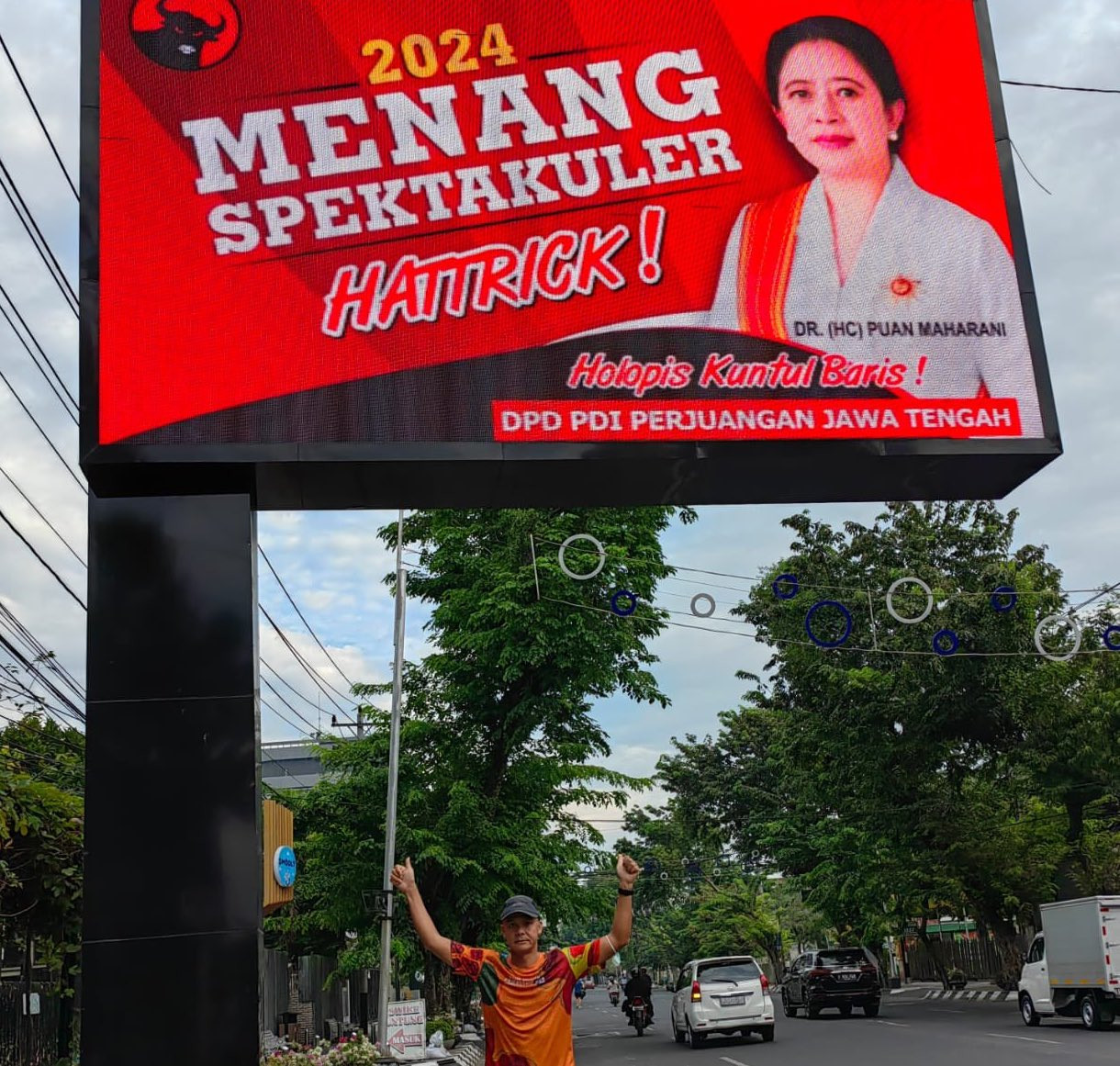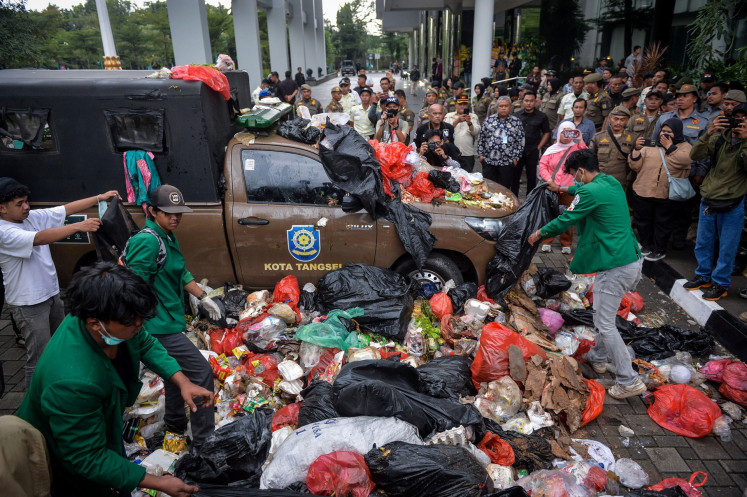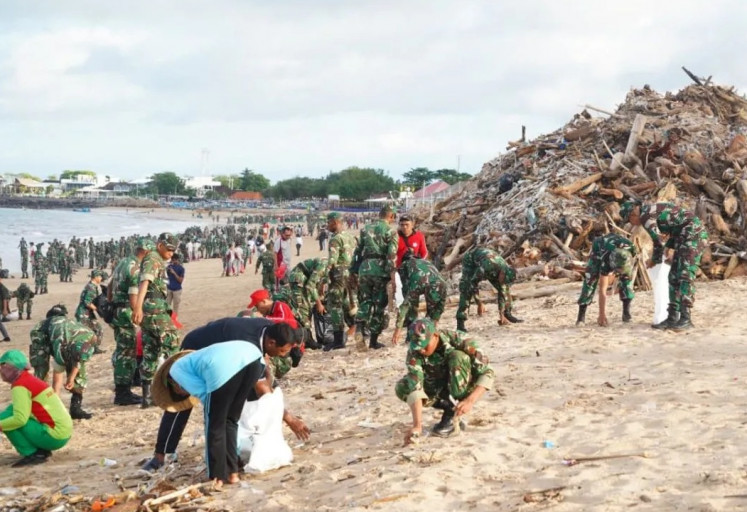Popular Reads
Top Results
Can't find what you're looking for?
View all search resultsPopular Reads
Top Results
Can't find what you're looking for?
View all search resultsIndonesia’s TikTok election
Gen Zers are projected to play a key role in the upcoming elections, which have been framed by many as a critical period that would shape, if not determine, the future of the country.
Change text size
Gift Premium Articles
to Anyone

The 2024 general elections will likely go down in history as Indonesia’s first TikTok election, given the rising popularity of the Chinese video-hosting service in the country.
United States-based social media platforms such as Facebook, Instagram and Twitter will still play a role in the upcoming elections. But they will not be the only players in the game anymore. In fact, they may no longer serve as the primary battleground for election contenders seeking to capitalize on the new generation of voters: the Gen Zers.
The rise of TikTok is part of a generational shift in global society, which comes at a time when China is emerging as an economic powerhouse. TikTok has taken the world by storm, and it is only a matter of time before it reshapes our electoral politics.
We have had different kinds of “online” elections before — the first one was in 1999 when mailing lists, mostly hosted by Indonesianists abroad, served as uncensored communication channels for students and political activists. It was the online election for Gen Xers, who are currently replacing the baby boomers as policymakers. The millennials, many of whom are (apparently still) on Twitter, had their day during the last two elections, catapulting the then-obscure regional politician, Joko “Jokowi” Widodo, into political stardom. Jokowi, in a nutshell, is a byproduct of our own Twitter election.
Gen Zers will make up at least a quarter of eligible voters next year. They are currently the largest age group in the country, accounting for 27.94 percent of the population. They are projected to play a key role in the upcoming elections, which have been framed by many as a critical period that would shape, if not determine, the future of the country.
Here is why TikTok is a big factor in that process. Indonesia now hosts the second largest TikTok audience in the world with 113 million users, second only to that of the US and accounting for about half of its audience in Southeast Asia.

Election contenders have now begun to consider TikTok as a primary digital channel for their campaign. The Prosperous Justice Party (PKS), the nation’s largest Islamist party, has been aggressively seeking followers on the platform. It is now leading the pack with 57,800 followers, followed by the United Development Party (PPP) and the Gerindra Party with 48,100 and 47,700 followers, respectively.
Such figures are far from impressive, especially when compared with how they performed on US-based, older and troll-infested platforms like Twitter and Facebook. It is wrong to suggest that TikTok will have a limited effect on the election, however.
It is often the case that people are less interested in engaging with the official accounts of political parties or politicians on social media. Thus, many have chosen to use the technique called “astroturfing” — the act of mobilizing a group of paid social media users to create an impression that a political candidate is supported by the grassroots. Unofficial campaigns like this are prone to being used for spreading disinformation.
In the Philippines, TikTok is believed to have played a role in the election victory of Ferdinand “Bongbong” Marcos Jr., the son of the country’s dictator, Ferdinand Marcos Sr. One of the pro-Bongbong short clips that went viral on TikTok featured a conversation between Bongbong and a former defense minister under his father’s rule, during which the latter claimed that the Philippines was much safer under Marcos’ martial law.
TikTok users have reported seeing various videos about the presumptive presidential candidates even though the two frontrunners in the 2024 race, Ganjar Pranowo and Prabowo Subianto, have yet to create their official accounts on the platform. The battle for the hearts and minds of TikTokers will only heat up once the political parties registered their presidential and vice-presidential nominees in November.
TikTok has a clear policy to maintain the integrity of elections in countries where it is operating, introducing several programs that make it easier for its users to follow its community guidelines, report misleading content and connect to authoritative election information channels. But even with such policies in place, disinformation can still flow freely on the platform, raising concerns about its impact on the elections.
The election organizers, meanwhile, have yet to outline a clear policy on the use of social media platforms in the 2024 elections, playing down the threat of disruptions posed by the fast-changing, and oftentimes game-changing, digital technology.
We should not take this issue lightly. All stakeholders must come up with stronger and more effective policies to ensure the integrity of the 2024 elections.










